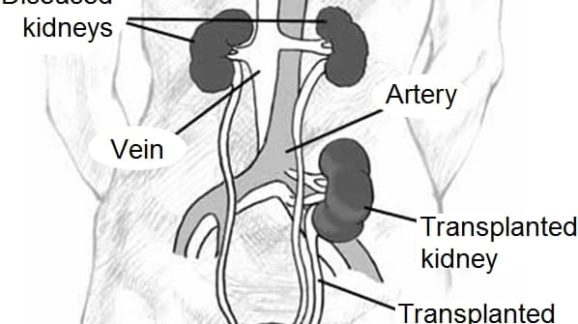Sell a Kidney, Save a Life

 Last week I blogged about the idea that some things should not be part of a market economy, and highlighted one rather silly example of a particular item being outlawed: in that case, futures contracts in onions. But there are far more serious examples of policymakers forbidding commerce in specific goods with disastrous results, in particular human organs like kidneys.
Last week I blogged about the idea that some things should not be part of a market economy, and highlighted one rather silly example of a particular item being outlawed: in that case, futures contracts in onions. But there are far more serious examples of policymakers forbidding commerce in specific goods with disastrous results, in particular human organs like kidneys.
The same day I wrote about onions, Shmuly Yanklowitz wrote in The Atlantic about the advantages we could see from allowing a market in “compensated donation” of kidneys. Yanklowitz has an unusual perspective, being the founder of a social welfare nonprofit organization as well as someone who has recently given an undirected kidney donation. Most of us will never possess the selflessness that is required to donate a major organ to someone we’ve never met, but, as he and others have pointed out, thanks to market incentives, we don’t have to.
Thousands of people die every year waiting for kidneys to become available, and the usual treatment for people on the list, dialysis, is expensive and inconvenient. And, as journalist Tina Rosenberg wrote earlier this year in the New York Times, it’s not that money isn’t already a big part of the transplant process.
“As a surgeon, I get paid,” said Kenneth Newell, a transplant surgeon at Emory University and a past president of the American Society of Transplantation. “The hospital gets paid. The nephrologist gets paid. The patient gets a new kidney and perhaps gets to re-engage in his life’s work. The insurer gets money” (because a transplant costs about the same as a single year of dialysis). “Everyone gets paid, except the donor,” he said. In other words, the donor, and only the donor, must act solely out of altruism.
The economic basics are clear: artificially underpricing a commodity reduces the supply. Someone donating a kidney today will not only receive no monetary reward for donating the organ itself, but also no compensation for the risks associated with a major surgical procedure. Transplant advocates like Yanklowitz understandably suggest that the health risks associated with surgery itself are small (he cites this FAQ from the University of Maryland Medical Center), but whatever the risk level is, it certainly isn’t zero. In that sense, the “payment” for organ donation is actually negative, driving even more potential suppliers away from the transaction than if it were merely neutral.
So it seems very likely that paying people to donate organs would save thousands of lives a year by motivating more donations. Yet there are still many who would object, arguing that a human organ is somehow too special a thing to put a price on, or that buying and selling kidneys would devalue our intrinsic human dignity. This reaction is dealt with quite well by Georgetown University professors Jason Brennan and Pete Jaworski.
Yet the main barrier to legalizing such markets is the widespread view that kidney markets are repulsive, disgusting, and degrading. However, Americans do not have to think that way; it’s just a contingent fact about American culture that we have constructed a code of meaning in which kidney sales count as disrespectful. Since these markets would save lives, Americans could instead view kidney markets as expressing respect for life rather than disrespect for the body. They could view such markets as no less degrading than markets in professors’ lectures. Still, Americans are willing to let people die in order to hold true to their code of meaning. But this isn’t a reason to forbid kidney markets. Rather, it’s a reason to change American culture.
Sometimes the argument “if just feels wrong” is itself the wrong argument. We have an impressive and powerful tool at our disposal for solving the problem of people with failing kidneys staring death in the face, if we can bring ourselves to use it. Competitive markets have increased the supply and quality of virtually every other commodity one can name, while also helping to raise living standards and improve health outcomes. There’s no good reason to think that paying people for kidneys is going to be the one exception.